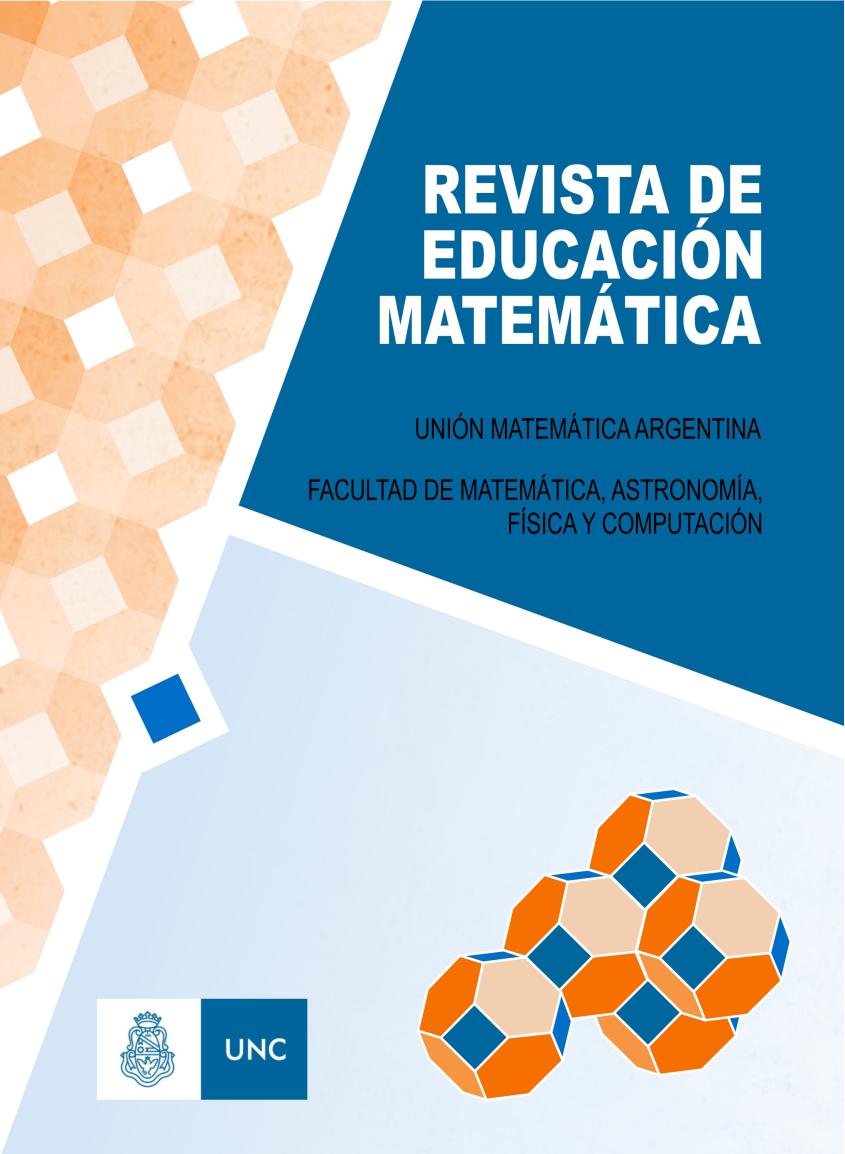Subjetivación matemática, democracia y la dignidad de estar siendo: una década después
DOI:
https://doi.org/10.33044/revem.39923Palabras clave:
Cambio climático, Violencia, Subjetivación matemáticaResumen
¿Qué retos enfrenta la educación matemática hoy en día con respecto a su posible contribución a la democracia? Atención a los tipos de subjetividades que se fabrican en las prácticas de la educación matemática y se promueven con los planes curriculares abre la posibilidad de cuestionar la violencia que suele suceder en el encuentro con las matemáticas escolares. El mundo actual de cambio climático requiere que tal cuestionamiento nos lleve a nuevas imaginaciones pedagógicas que permitan la dignidad de estar siendo.
Descargas
Referencias
Bullock, E. C. (2018). Intersectional analysis in critical mathematics education research: A response to figure hiding. Review of Research in Education, 42(1), 122–145. Descargado de https://doi.org/10.3102/0091732x18759039
Caligari, L., Norén, E., y Valero, P. (2021). Multilingual students working with illustrated mathematical word problems as social praxis. En Multilingual Education Yearbook 2021 (pp. 175–194). Springer. Descargado de https://doi.org/10.1007/978-3-030-72009-4_10
Diaz, J. D. (2017). A cultural history of reforming math for all. The paradox of making in/equality. Routledge.
Doğan, O., y Haser, Ç. (2014). Neoliberal and nationalist discourses in Turkish elementary mathematics education. ZDM, 46(7), 1013–1023. Descargado de https://doi.org/10.1007/s11858-014-0605-z
Ernest, P. (2021). A dialogue on the deep ethics of mathematics. For the Learning of Mathematics, 41(3), 47–52.
Fernandes, F. S. (2021). Matemática e colonialidade, lados obscuros da modernidade: giros decoloniais pela Educação Matemática. Ciência & Educação (Bauru), 27. Descargado de https://doi.org/https://doi.org/10.1590/1516-731320210065
Gholson, M. L., y Martin, D. B. (2019). Blackgirl face: Racialized and gendered performativity in mathematical contexts. ZDM, 51(3), 391–404. Descargado de https://doi.org/10.1007/s11858-019-01051-x
Graven, M., y Heyd-Metzuyanim, E. (2019). Mathematics identity research: The state of the art and future directions. ZDM, 51(3), 361–377. Descargado de https://doi.org/10.1007/s11858-019-01050-y
Latour, B. (2018). Down to Earth: Politics in the New Climatic Regime. Polity Press.
Llewellyn, A. (2018). Manufacturing the mathematical child: A deconstruction of dominant spaces of production and governance. Routledge.
Osibodu, O. (2020). Embodying Ubuntu, Invoking Sankofa, and Disrupting with Fela: A Co-Exploration of Social Issues and Critical Mathematics Education with Sub-Saharan African Youth. Michigan State University. Lancing.
Parra, A. (2021). Mathematics education, researchers and local communities: A critical encounter in times of pandemic, pareidolia and post-factualism. En D. Kollosche (Ed.), Exploring new ways to connect: Proceedings of the Eleventh International Mathematics Education and Society Conference (pp. 65–80). @zenodo_org. Descargado de https://doi.org/10.5281/zenodo.5336638
Parra, A., y Valero, P. (2021). Propio as a decolonising tool for mathematics education. En A. Andersson y R. Barwell (Eds.), Applying critical mathematics education (pp. 71–99). Brill. Descargado de https://doi.org/https://doi.org/10.1163/9789004465800_004
Planas, N., y Valero, P. (2016). Tracing the socio-cultural-political axis in understanding mathematics education. En A. Gutiérrez, G. C. Leder, y P. Boero (Eds.), The Second Handbook of Research on the Psychology of Mathematics Education. The Journey Continues (pp. 447–479). Sense Publishers.
Skovsmose, O. (2020). Banality of mathematical expertise. ZDM, 52(6), 1187–1197. Descargado de https://doi.org/10.1007/s11858-020-01168-4
Skovsmose, O. (2021). Mathematics and crises. Educational Studies in Mathematics, 108(1), 369–383. Descargado de https://doi.org/10.1007/s10649-021-10037-0
Valero, P. (2003). Reform, democracy and mathematics education: Towards a socio-political frame for understanding change in the organization of secondary school mathematics. [PhD Thesis, Danish University of Education] Copenhagen.
Valoyes-Chavez, L., y Andrade-Molina, M. V. (2022). Black Immigrant Children: Abjection, In (ex) clusion and School Mathematics Reform. Magis, Revista Internacional de Investigación en Educación, 15, 1–24. Descargado de https://doi.org/doi:10.11144/Javeriana.m15.bica
Yolcu, A. (2019). Research on equitable mathematics teaching practices: Insights into its divergences and convergences. Review of Education, 7(3), 701–730. Descargado de https://doi.org/https://doi.org/10.1002/rev3.3163
Descargas
Publicado
Número
Sección
Licencia

Esta obra está bajo una licencia internacional Creative Commons Atribución-CompartirIgual 4.0.
Aquellos autores/as que tengan publicaciones con esta revista, aceptan los términos siguientes:
- Los autores/as conservarán sus derechos de autor y garantizarán a la revista el derecho de primera publicación de su obra, el cuál estará simultáneamente sujeto a la Atribución-CompartirIgual 4.0 Internacional (CC BY-SA 4.0), que permite:
- Compartir — copiar y redistribuir el material en cualquier medio o formato
- Adaptar — remezclar, transformar y construir a partir del material
- La licenciante no puede revocar estas libertades en tanto usted siga los términos de la licencia
- Los autores/as podrán adoptar otros acuerdos de licencia no exclusiva de distribución de la versión de la obra publicada (p. ej.: depositarla en un archivo telemático institucional o publicarla en un volumen monográfico) siempre que se indique la publicación inicial en esta revista.
- Se permite y recomienda a los autores/as difundir su obra a través de Internet (p. ej.: en archivos telemáticos institucionales o en su página web) después del proceso de publicación, lo cual puede producir intercambios interesantes y aumentar las citas de la obra publicada. (Véase El efecto del acceso abierto).









